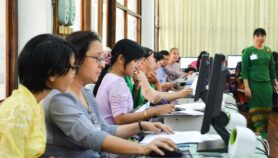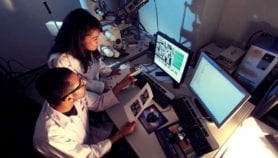By: Wagdy Sawahel
Send to a friend
The details you provide on this page will not be used to send unsolicited email, and will not be sold to a 3rd party. See privacy policy.
Iraq’s beleaguered scientific community can now access more than a million research articles in 17,000 journals thanks to an Internet-based initiative that launched on 3 May.
The Iraqi Virtual Science Library is the result of a public-private partnership led by the US National Academy of Sciences (NAS).
The library provides free full-text access to scientific journals from major publishers in engineering, computer science, the life sciences and physical sciences.
It also offers a substantial collection of educational materials, including online encyclopaedias, books, course materials, information about funding and research opportunities, and other resources.
So far, 800 Iraqi scientists have registered with the online library.
The project’s co-founder Susan Cumberledge describes it as a shining example of how the Internet can help people “even under the most difficult situations”.
Iraq’s scientific community has suffered considerably in the past few years.
Many universities were burnt, looted or destroyed during and immediately after the US-led invasion in 2003 (see Iraqi higher education in tatters, says report). Since then, scores of academics have been murdered (see Nearly 200 Iraqi academics killed since 2003).
The US Civilian Research Development Foundation is operating the library for two years at a cost of more than US$170,000. After that, the library will be transferred to Iraqi control and computer servers.
Nabil Al-Tikriti, an Iraqi researcher at the University of Mary Washington, United States, applauds the initiative.
“It appears to be an excellent way to begin redressing the damage done to Iraq’s scientific research community through 13 years of sanctions, three years of targeted assassinations, and several months of institutional chaos,” he says.
However, he is concerned that users in Iraq could be “electronically tracked by certain elements while using the service at home. That could lead to more targeted assassinations.”













